
Knowledge Shares
Knowledge shares are 2 hour workshops exploring a facet of a facilitator’s scholarship, expertise & lineage.
All times listed are Eastern Standard Time.
access every knowledge share in our archivehere
~
access every knowledge share in our archivehere ~
Get access to every live online knowledge share for 2025, including recordings from classes from 2024 and 2023 and occasional knowledge shares from passed years.
With an anticipated 2025 roster of at least 20 knowledge shares, the Living Library subscription (worth $1,000+ in individual tickets) is the most affordable way to guarantee access to a year’s worth of Herban Cura’s curated online programming.
You can read more about the vision for the living library, which this offering is nested within, here.
or add individual knowledge shares to your cart from the list below!

Getting Sh*t Done Together: Resentment and Repair
with Dean Spade
In this knowledge share, we'll look at how to identify resentment, examine what lives beneath it, and transform our practices so that we can connect with purpose and pleasure in doing things we care about. People often joke that resentment is like taking poison and hoping it will make someone else die. Resentment comes up in relationships of all kinds, between family members, lovers, organizers, roommates, artistic collaborators, and co-workers. Resentment is a reasonable response to frustrating conditions in life, but it can take the pleasure out of doing things we care about with other people.

cacao: history, culture, ethics and politics
with Dr. Pilar Egüez Guevara
This knowledge share draws from the short film Tarpuna, Keepers of Cacao. Part I: Water, which follows protectors of the forest, the river, the seeds, and the ancestral knowledge that sustains cacao cultivation in Ecuador’s subtropical Andean Chocó. Through their voices, participants are invited to understand cacao not only as a crop, but as food, medicine, and cultural memory, and as a vital part of the land that Indigenous communities continue to defend.

Herban Cura: Hudson Valley Spring intro to Herbalism Immersion
with Antonia Estela Pérez
The intention for this Intro to Herbalism IN PERSON immersion is to grow each individual’s awareness and relationship to their own internal ecology, territory they are on and the messages the plants growing in the North East bioregion are sharing with us. These four sessions aim to activate observational skills and curiosity to learn about the beings growing and living around and with us, whether we live in an urban landscape or not. We will also be learning basic medicine making to support your self and loved ones.
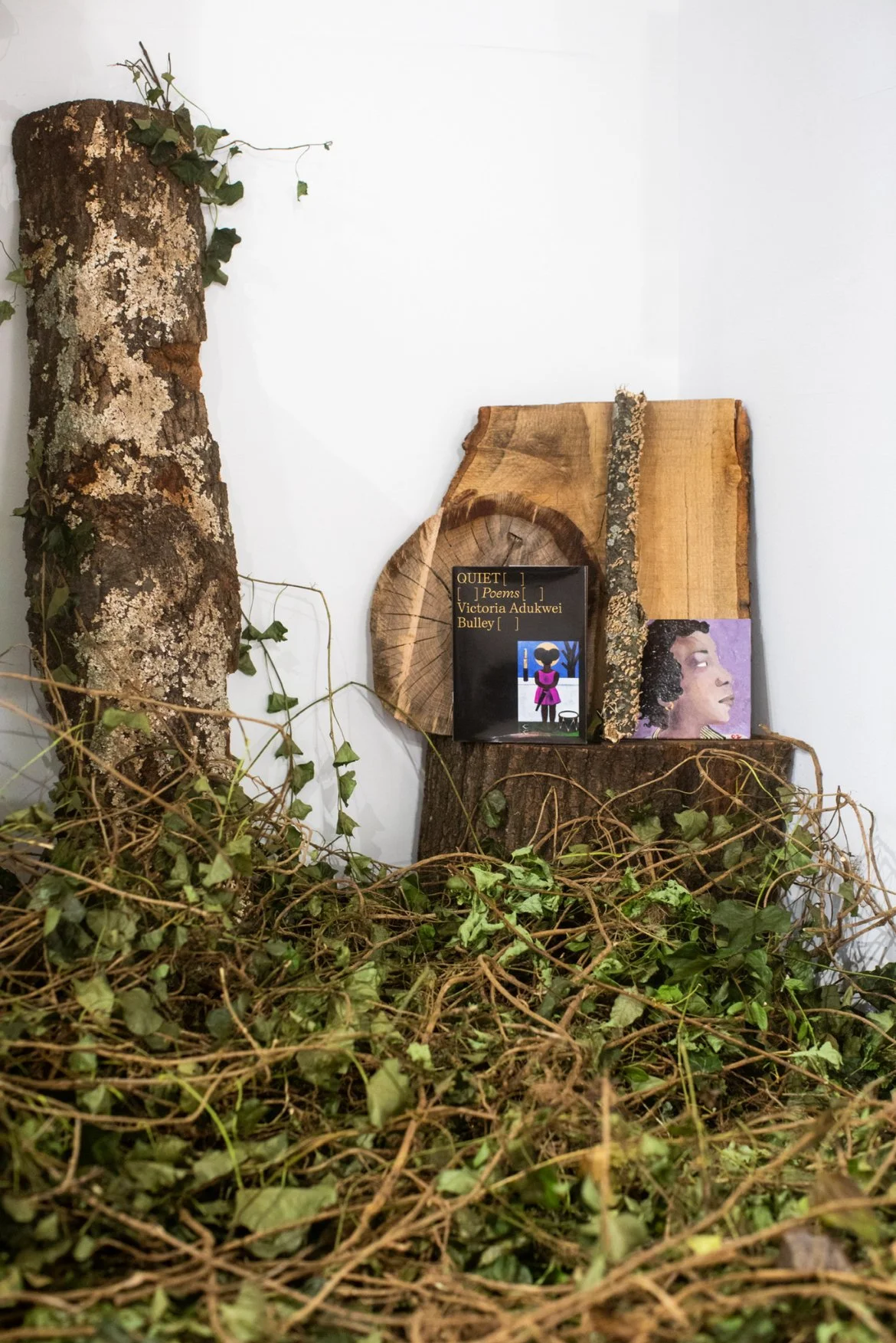
Shade is A Place: Shade Equity & Arboreal Stewardship
with MaKshya Tolbert
This knowledge share explores how poetry, walking, and attention to place can help us understand our relationships to land, climate, and each other. Using MaKshya Tolbert’s Shade is a place as a starting point, the workshop looks at shade—especially tree shade—as a site of rest, care, memory, and Black sense of place.
Participants will engage with the project’s practices (such as shade walks and shade studies) to reflect on how environments shape interior life, how climate and social conditions are felt in the body, and how slowing down can be a form of care and resistance. The workshop centers conversation and reflection rather than production, inviting participants to think about where they live and move, how they relate to their surroundings, and what it means to “begin again” in changing ecological and social conditions.

Herban Cura: New York City Fall Intro to Herbalism Immersion
with Antonia Estela Pérez
The intention for this Intro to Herbalism IN PERSON immersion is to grow each individual’s awareness and relationship to their own internal ecology, territory they are on and the messages the plants growing in the North East bioregion are sharing with us. These four sessions aim to activate observational skills and curiosity to learn about the beings growing and living around and with us, whether we live in an urban landscape or not. We will also be learning basic medicine making to support your self and loved ones.
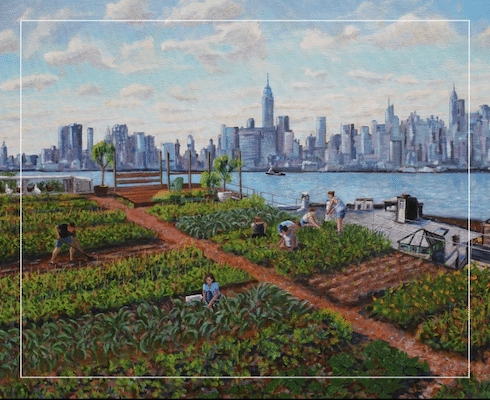
On the Origins of Capitalism and the Enclosure of the Commons
with Dr. Silvia Federici
This knowledge share with Silvia Federici explores the rise of capitalism, beginning with the transition from feudalism and the enclosure of communal land. Federici traces capitalism’s foundations to the transatlantic slave trade, European colonization, and the violent dispossession of land and resources—processes that dismantled the commons and produced new hierarchies of race, gender, and class. The session also connects this history to modern wage labor, showing how capitalism was built through separation from shared resources and the devaluation of unpaid and reproductive labor, especially women’s work.
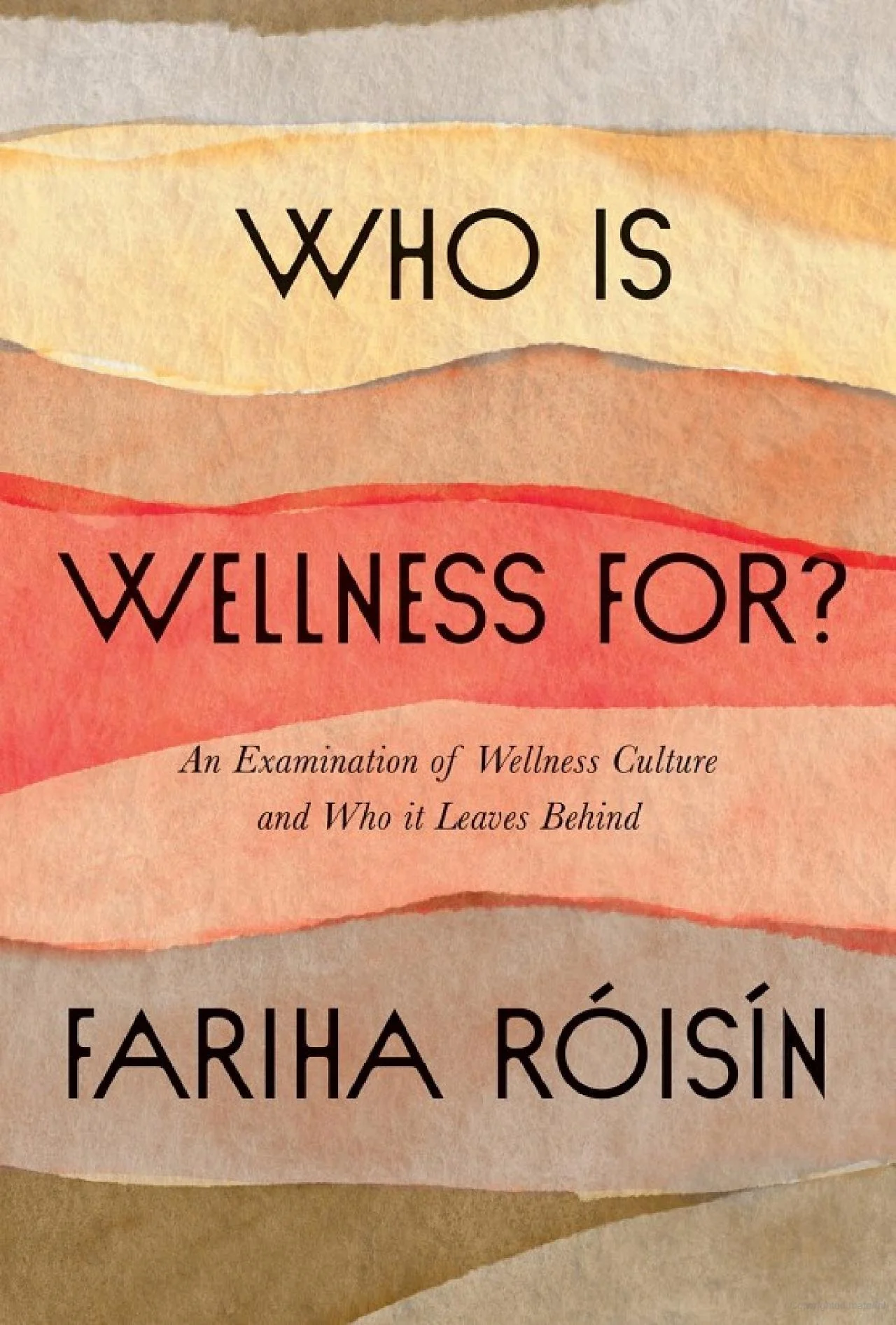
Wellness as an act of Decolonization
with Fariha Róisín
In this knowledge share, we explore the profundity of wellness—taking care of oneself in order to take care of the community—as an expansive practice. Through colonization, we've been split from our ancient technologies and ruptured from our ancestral lineages and practices of care and spirit. Fariha has written about this extensively, primarily in their book Who Is Wellness For? but in order for us to fully comprehend the future and evolution of our people and society, we must understand that the path to liberation lies within us.

Keys to Indigenous Resilience: Culture, Values, and Place
with Dr. Michael Kotutwa
This knowledge share highlights the importance of place, culture, and values—the enduring “Why” of Indigenous tribal agriculture. Since time immemorial, Indigenous tribes such as the Hopi Tribe of the U.S. Southwest have cultivated agricultural systems that endure through droughts, floods, and other climate challenges. Guided by cultural and spiritual values rooted in relationship with the environment, these systems remain sustainable.

Women, witches, and the ongoing struggle for land and food sovereignty.
with Dr. Silvia Federici
In this knowledge share, Federici traces the long history of women’s resistance to the enclosure of their lands, bodies, and communities, beginning in the 16th and 17th centuries. We will explore how women have come together to protect their environments and cultivate sustainable forms of agriculture and food provisioning. We will also examine witch-hunts—past and present—as strategies of repression in response to women’s defense of land, traditional practices, and ecological knowledge against the expansion of mining, agribusiness, and other extractive forces.

Herban Cura: New York City Intro to Herbalism Immersion
with Antonia Estela Pérez
The intention for this Intro to Herbalism IN PERSON immersion is to grow each individual’s awareness and relationship to their own internal ecology, territory they are on and the messages the plants growing in the North East bioregion are sharing with us. These four sessions aim to activate observational skills and curiosity to learn about the beings growing and living around and with us, whether we live in an urban landscape or not. We will also be learning basic medicine making to support your self and loved ones.
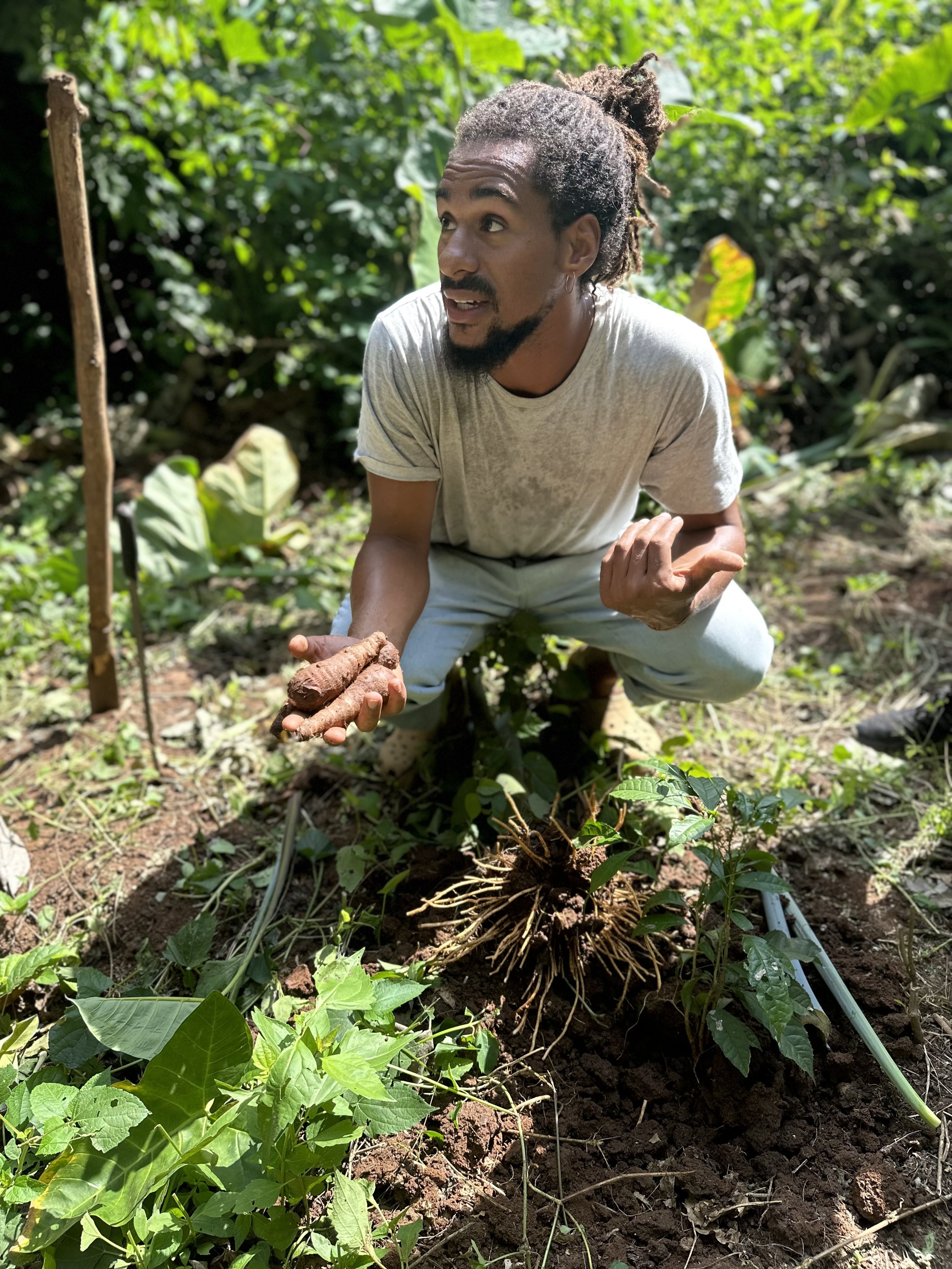
Summer Solstice Herbalism and Natural Building Immersion: Celebrating Life, Plants, & Connection
with Joshua Kwaku Asiedu and Antonia Estela Pérez
Join us on the Summer Solstice for a full day of herbalism and natural building with Joshua Kwaku Asiedu and Antonia Estela Pérez. We will spend the day connecting with the plants of the Northeast while also learning about the art of natural building. Antonia will guide us in learning to identify plants, discuss the medicinal properties, and make herbal medicine to support you through the season ahead. Joshua will guide us in connecting with soil, clay and mud — identifying usable natural resources, understanding their building potential and joyfully creating something from scratch that can remain on the land. Join us for a day of celebration, grounding and learning at Herban Cura: Plants to the People Farm, situated in the Catskill Mountains in West Saugerties, New York.
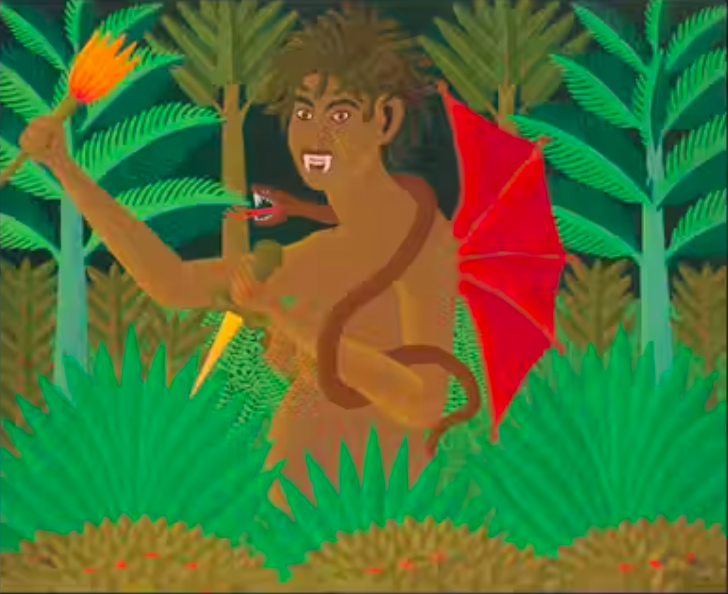
Salt, Rice, and Sorghum: Evading and Embracing the Soucouyant
with Dr. Giselle Anatol
In this knowledge share, Anatol will focus on the folk figure known as a “soucouyant” in Trinidad, and, in other parts of the African diaspora, as Old Hige or Old Hag, boo hag, azeman, volant, loogaroo, obayifo, and a host of other names. This creature appears in the community as an old woman during the day, but at night she sheds her skin, transforms into a ball of fire, and flies from house to house to suck the blood or life-force of her neighbors. It is said that rice, salt, or sorghum sprinkled on front stoops, doorways, windowsills, and village crossroads can protect sleepers from a soucouyant’s attack.
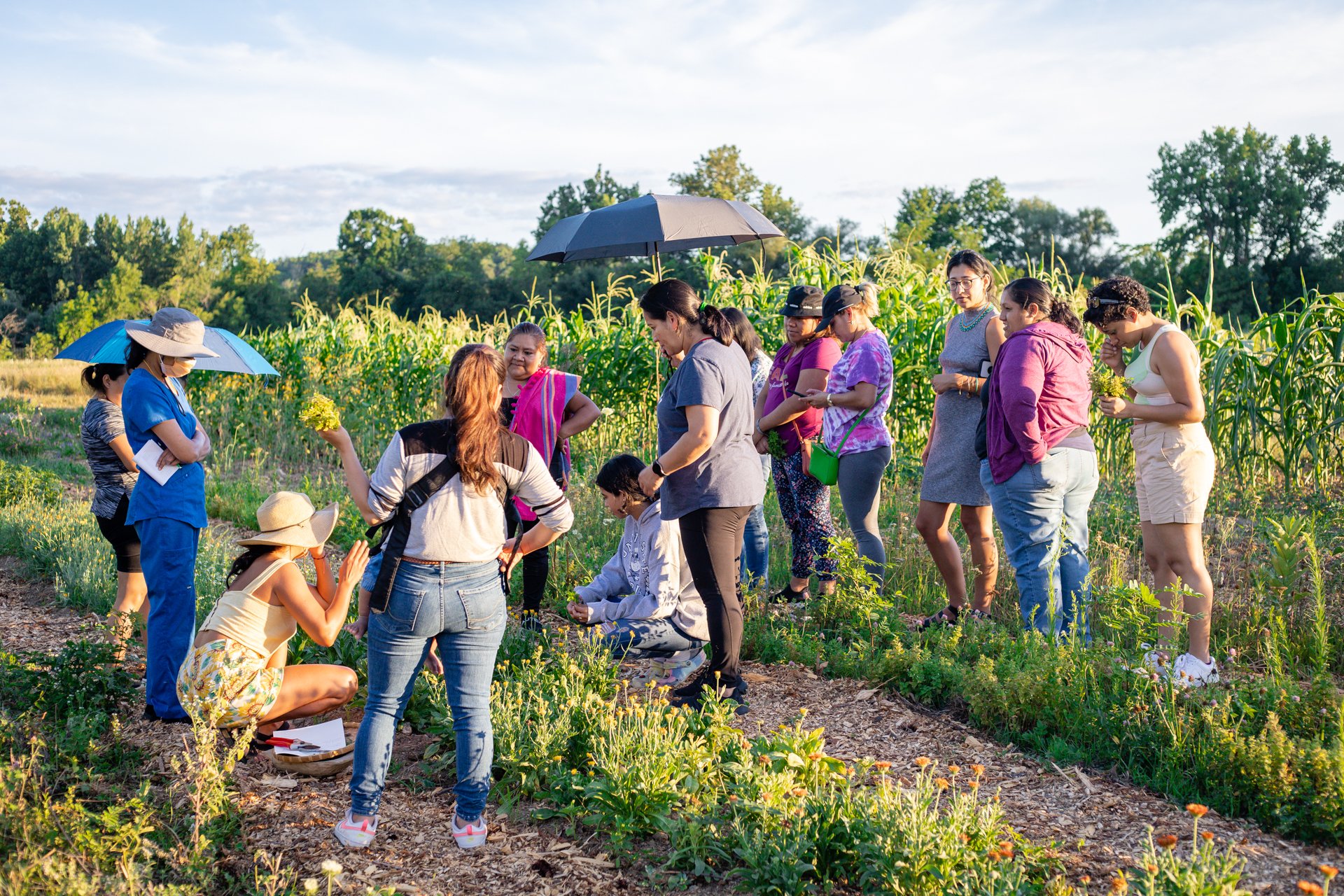
Herban Cura: Hudson Valley Spring Herbalism Immersion
with Antonia Estela Pérez
The intention for this Intro to Herbalism IN PERSON immersion is to grow each individual’s awareness and relationship to their own internal ecology, territory they are on and the messages the plants growing in the North East bioregion are sharing with us. These four sessions aim to activate observational skills and curiosity to learn about the beings growing and living around and with us, whether we live in an urban landscape or not. We will also be learning basic medicine making to support your self and loved ones.
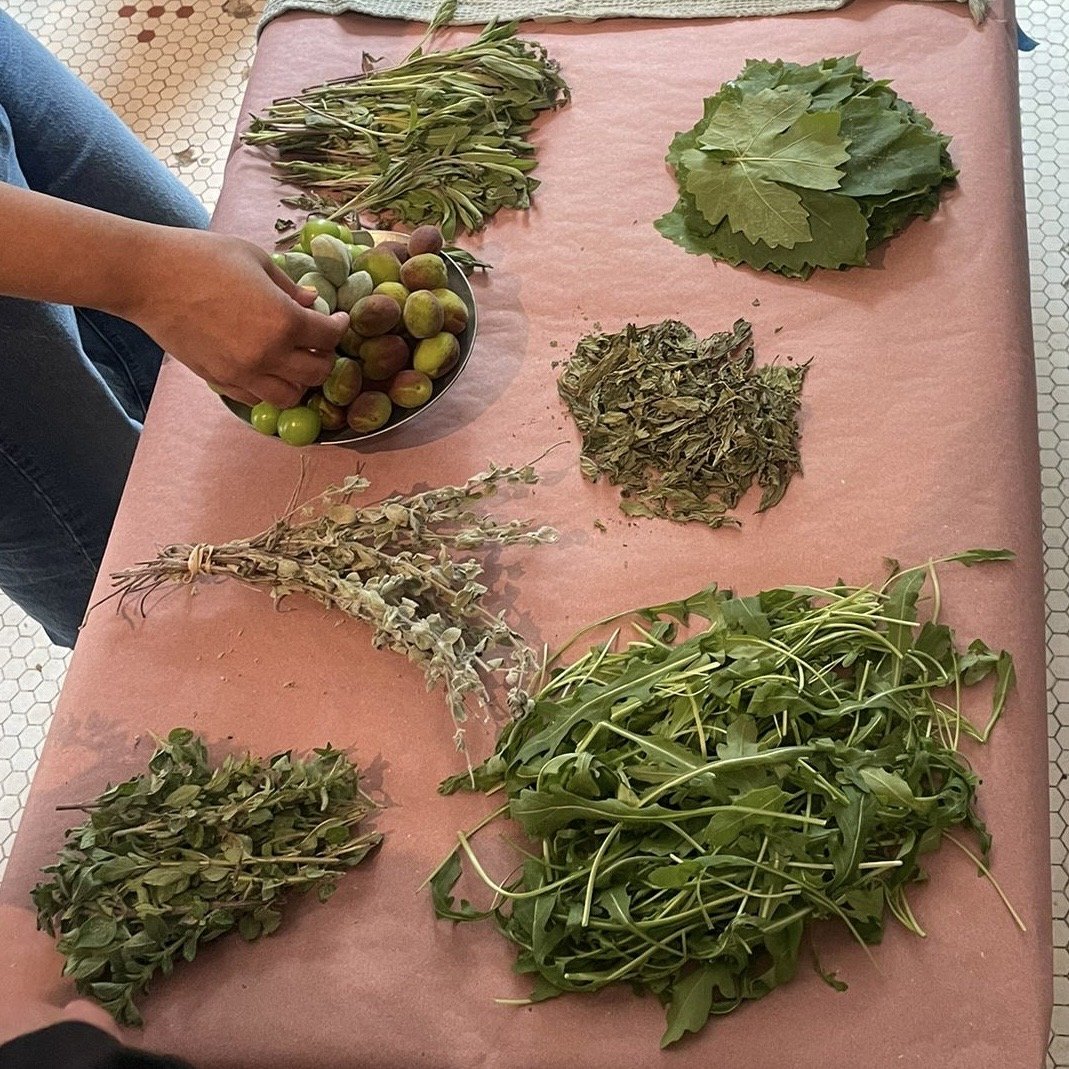
Ancestral Plants of Palestine
with Michelle Nazzal
In this knowledge share, we will examine ancestral plants and the role they play in Palestinian food and land-based culture. Together we’ll move through the history of foraging and generations-old culinary traditions, while discussing the devastating effects that genocide, forced famine and mass displacement can have on these practices. We will learn about how Palestinians on the land are preserving these traditions, and ways of remembering in the diaspora.
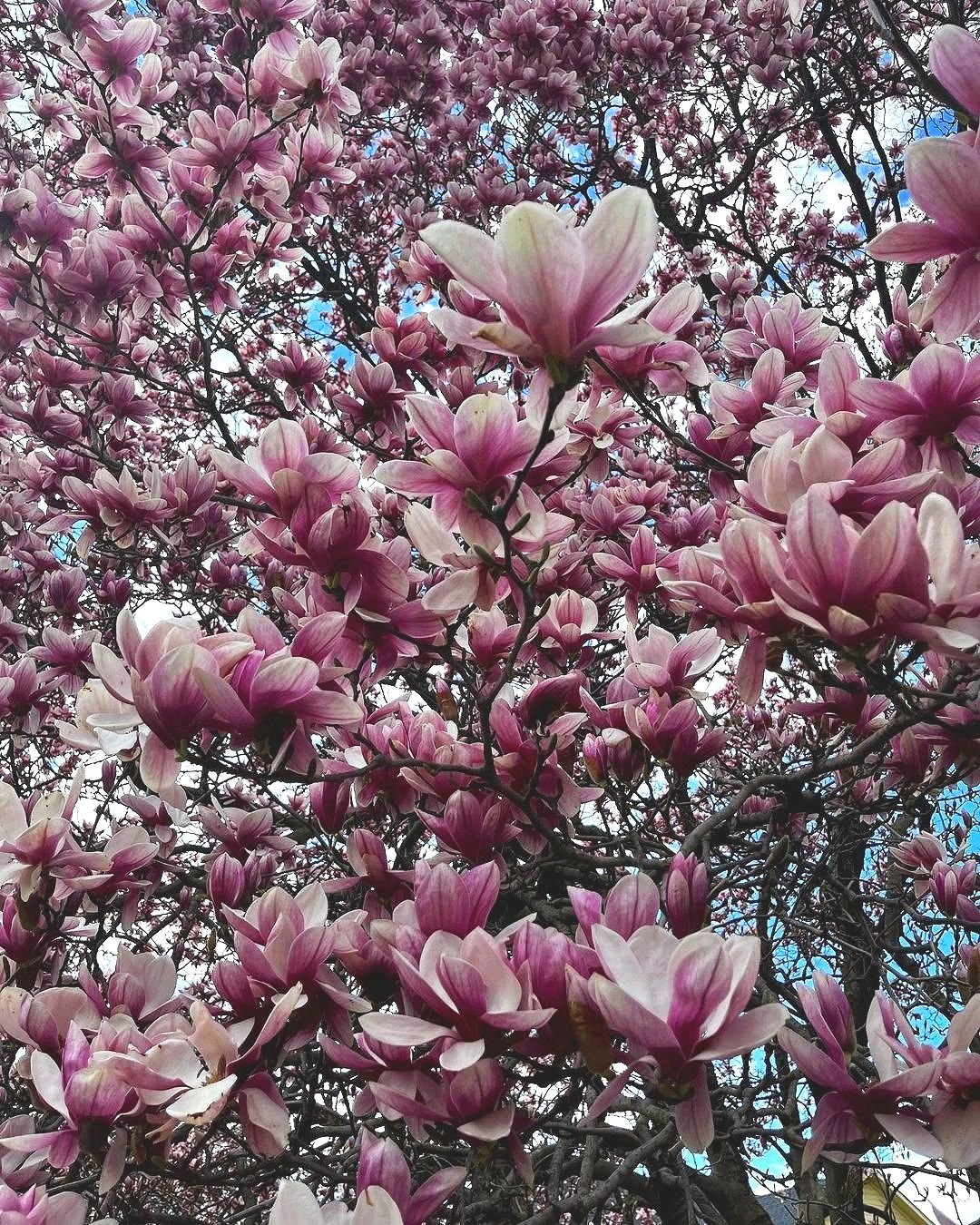
Spring Plant Walk and Wonder
Join Herban Cura founder and herbalist Antonia Estela Pérez for a plant identification walk along the Mahicantuck River (Hudson River) in Washington Heights, NY, where will be meeting edible and medicinal plants and trees growing along the river.
This walk is for anyone looking to start their journey with plants or curious to learn more about them!

Spring Awake: Vinegar Medicine for Sour Activation
with alma valdez-garcia
Join us for an uplifting & activating vinegar infusion workshop! We will learn how to make infused vinegar with dandelion, talk tea infusions, reflect on spring awakening & wake our bodies. Come ready to read some poems, build spring intentions, & take home your very own jar of infused vinegar.

Understanding Place
with kale mays
This time travel container will hold participants through a journey into the stories held by the soil, the waters, and the sky stretching over Brower Park and the neighborhood we now refer to as Crown Heights.
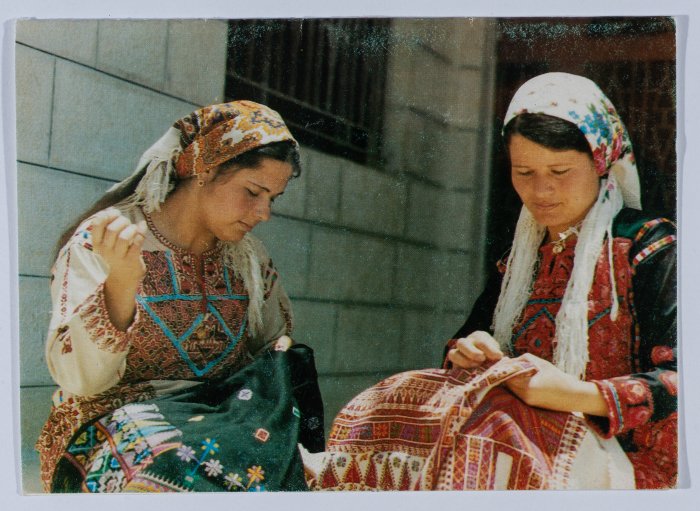
Regional Distinctions in Palestinian Dress, Late 19th/Early 20th Centuries
with Wafa Ghnaim
This knowledge share will explore the deep cultural significance of Palestinian women’s traditional dress, focusing on the thobe and the art of tatreez (embroidery). We will learn about the role of tatreez as a unique form of storytelling, where patterns, colors, and stitching techniques convey personal and collective histories, embodying the land, community, and the effects of occupation and exile. Participants will learn how this centuries-old craft has served as both a personal expression and a form of resistance.
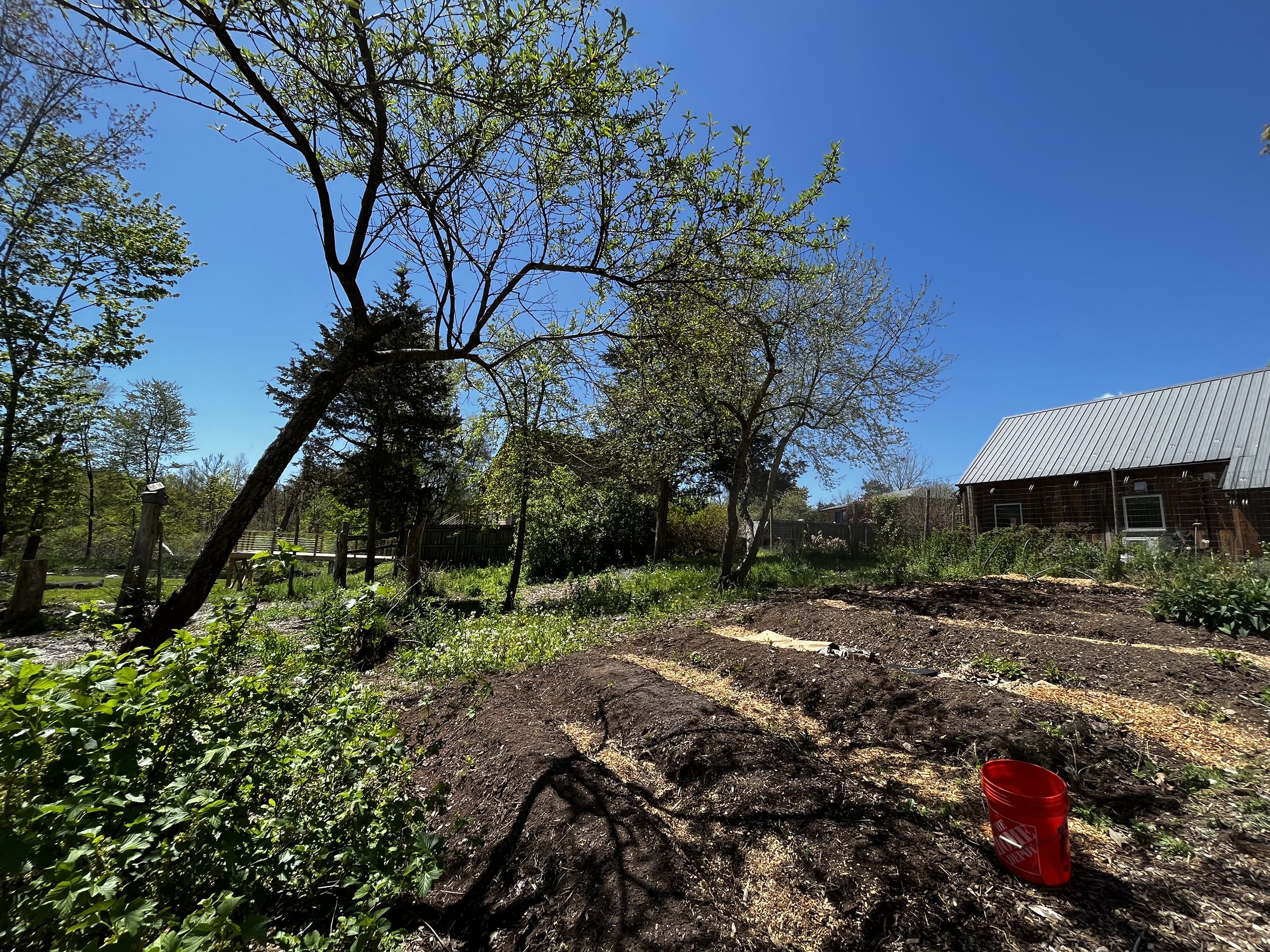
Compost Toilet Building 101: A Hands-On Workshop for Climate Resiliency and Practical Carpentry
with Harrison Basch
Join us for a three-day, hands-on workshop where you’ll learn the basics of carpentry while building a simple, functional compost toilet structure. This workshop is perfect for anyone looking to deepen their understanding of sustainable living practices, including the critical role composting toilets play in climate resiliency.

Coconuts, Oilseeds, and Reading Diaspora in Landscape
with Dr. Jayson Maurice Porter
In this knowledge share we will be discussing the role of plants in diaspora with a focus on coconuts and other oilseed in coastal Guerrero, Mexico. These plants have served as important conduits of liberation for Afro-Indigenous communities through Mexican Independence, the Mexican Revolution, and the agrarian reforms that followed.
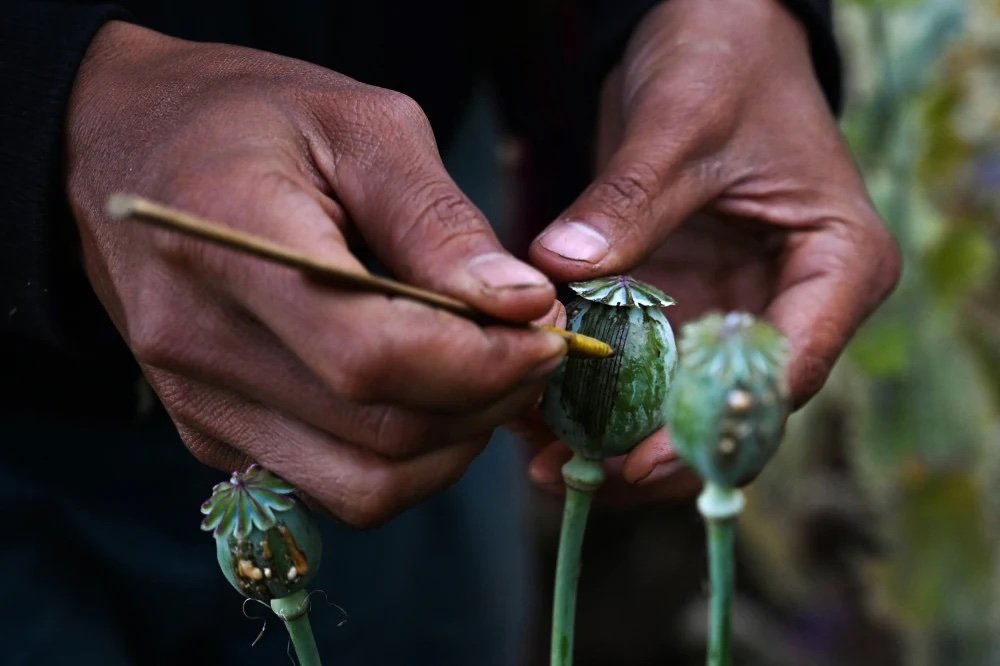
Opium Medicine: Traditional Knowledge, Imperial Terror and a Lifeline for Resistance
with Shabina Lafleur-Gangji
This knowledge share will explore traditional knowledge around opium poppies rooted in South Asian, North African and West Asian traditions, history of imperialist drug wars, and the use of the plant as a tool of resistance against imperialism, the war on drugs and slavery.
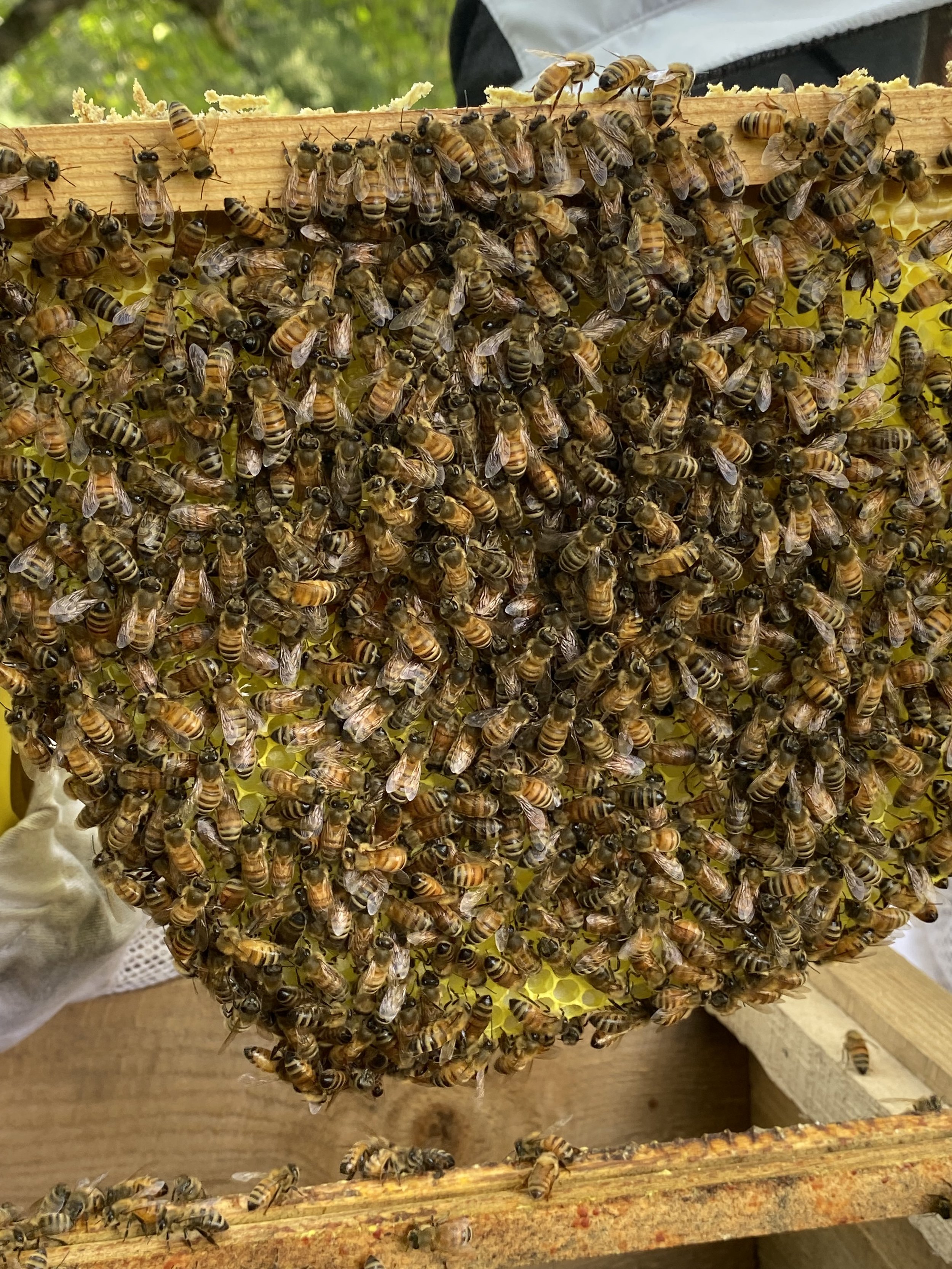
Biomimicry Beekeeping: Nature-Inspired Solutions for Thriving Bee Communities
with Alysia Mazzella
In this knowledge share, we look to the remarkable intelligence of nature by studying how rewilded honey bees survive and thrive without human intervention. This exploration will delve into the fascinating history of how honey bees arrived in the Americas and how the industrial practices of modern beekeeping have become unsustainable—both for the bees and for the ecosystems they support.

Bioremediation for Healing Lands & Waters: Transforming the Toxic Legacies of Occupation
with Leila
This knowledge share will provide an introduction to bioremediation — the practice of allying with living organisms to detoxify and regenerate contaminated soils and water. Participants will learn how to work with plants, fungi, beneficial microorganisms, and other regenerative remedies to remove, neutralize, or break down the toxic contaminants left by war. We will explore how bioremediation can help restore contaminated and damaged farmlands, heal ecosystems, protect water resources, and support healthy food systems in war-impacted areas.
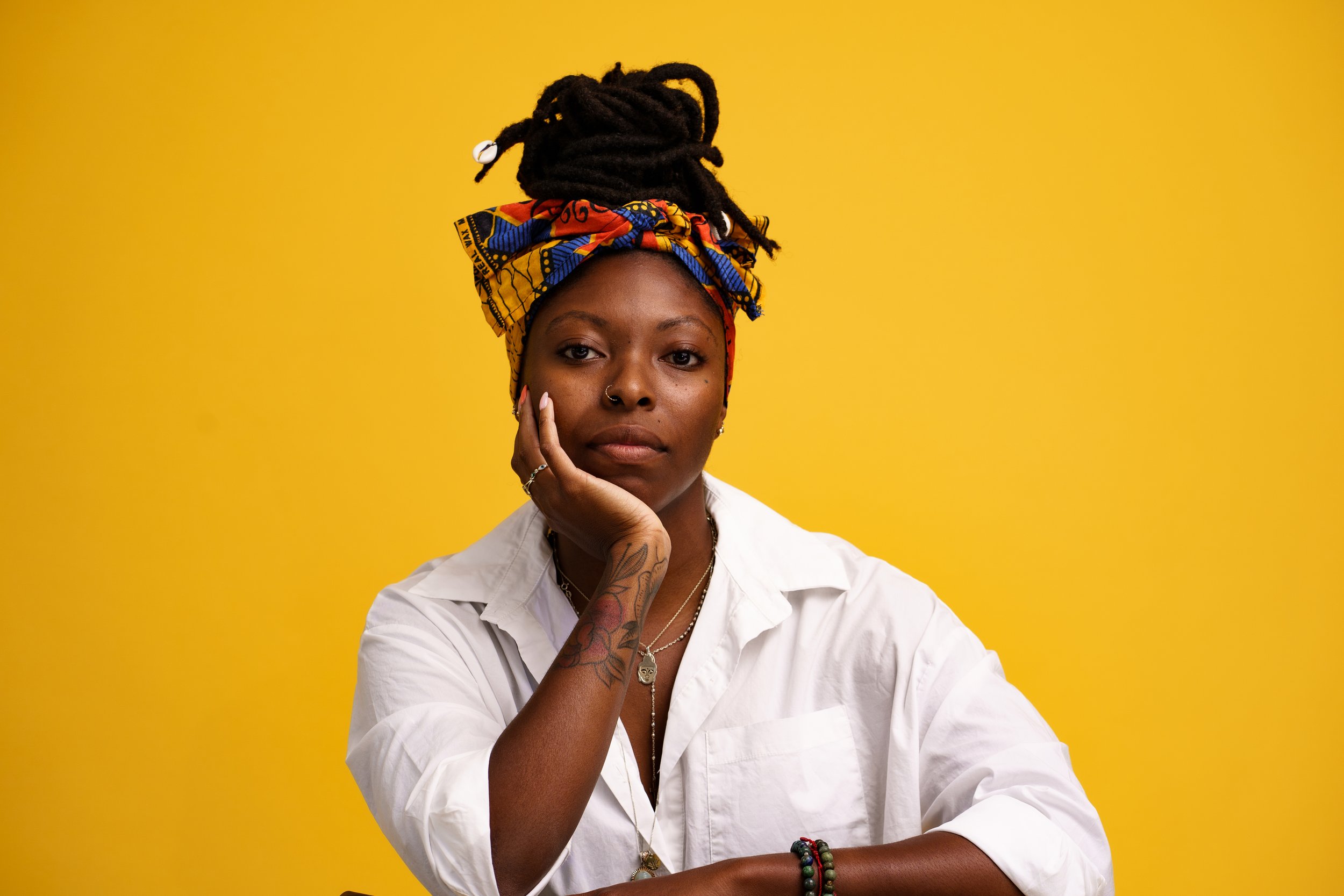
Black Perspectives on the Anthropocene: Fashion, Food, & Water
with Dr. Sha'Mira Covington
When the Anthropocene meets decoloniality and critical race theory, we collide at the critical intersection of fashion, food, and water. These are the few necessities that an individual needs to survive and a material and temporal solidarity exists between them.
The “Anthropocene” is used to explain how human actions shape the environment in all its physical, chemical, and biological characteristics. Chattel slavery and European colonization define the Anthropocene, followed by decades of the establishment of plantations, the introduction of cash crops, massive clearings of forests, the pollution of waterways, and other economic exploitation. So, what can a Black perspective on the Anthropocene teach us about our relationships to our basic necessities?
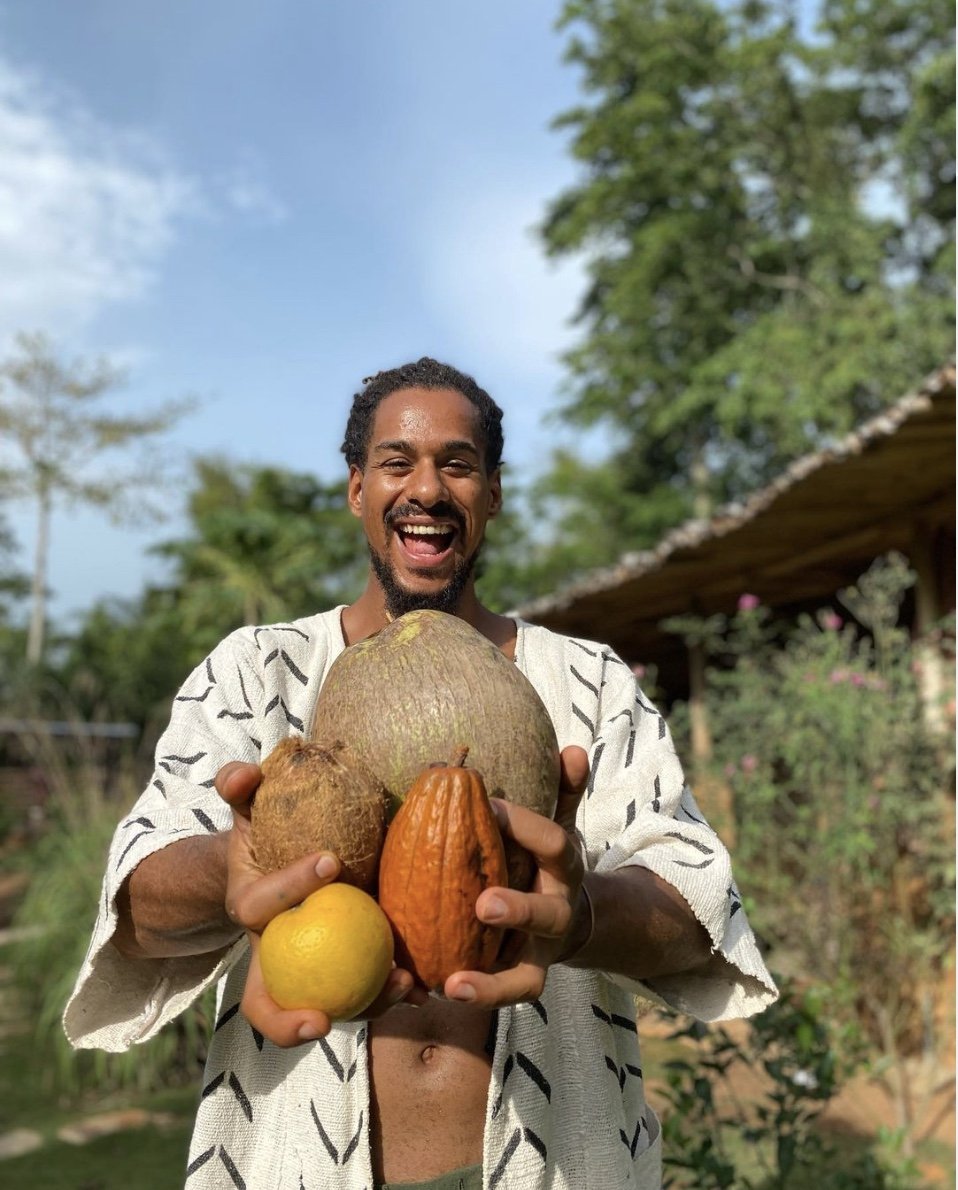
West African Tropical Ancestral Medicine: Connecting Tradition, Migration, and Healing Practices from Ghana
with Joshua Kwaku Asiedu
This knowledge share will provide a deeper understanding of how plants, both indigenous and introduced from regions like the Americas and Southeast Asia, have become woven into the cultural fabric of Ghana. You’ll learn how these plants are not just used for physical ailments, but also as tools for spiritual cleansing, personal healing, and connecting with the land.
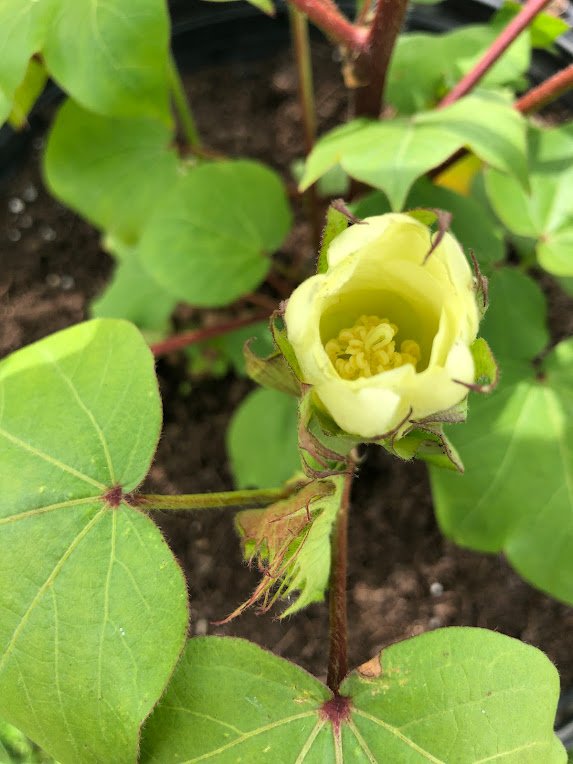
Geographies of Black Plant-Fibers and Dyes
with Teju Adisa-Farrar
This knowledge share delves into the heritage and resilience of plant fibers and dyes integral to Indigenous Black African geographies and the Black diaspora in the Caribbean. While most plant fibers and dyes are used primarily for textiles, this knowledge share will explore how these plants embody cultural identity, spirituality, ecological awareness, and medicinal properties
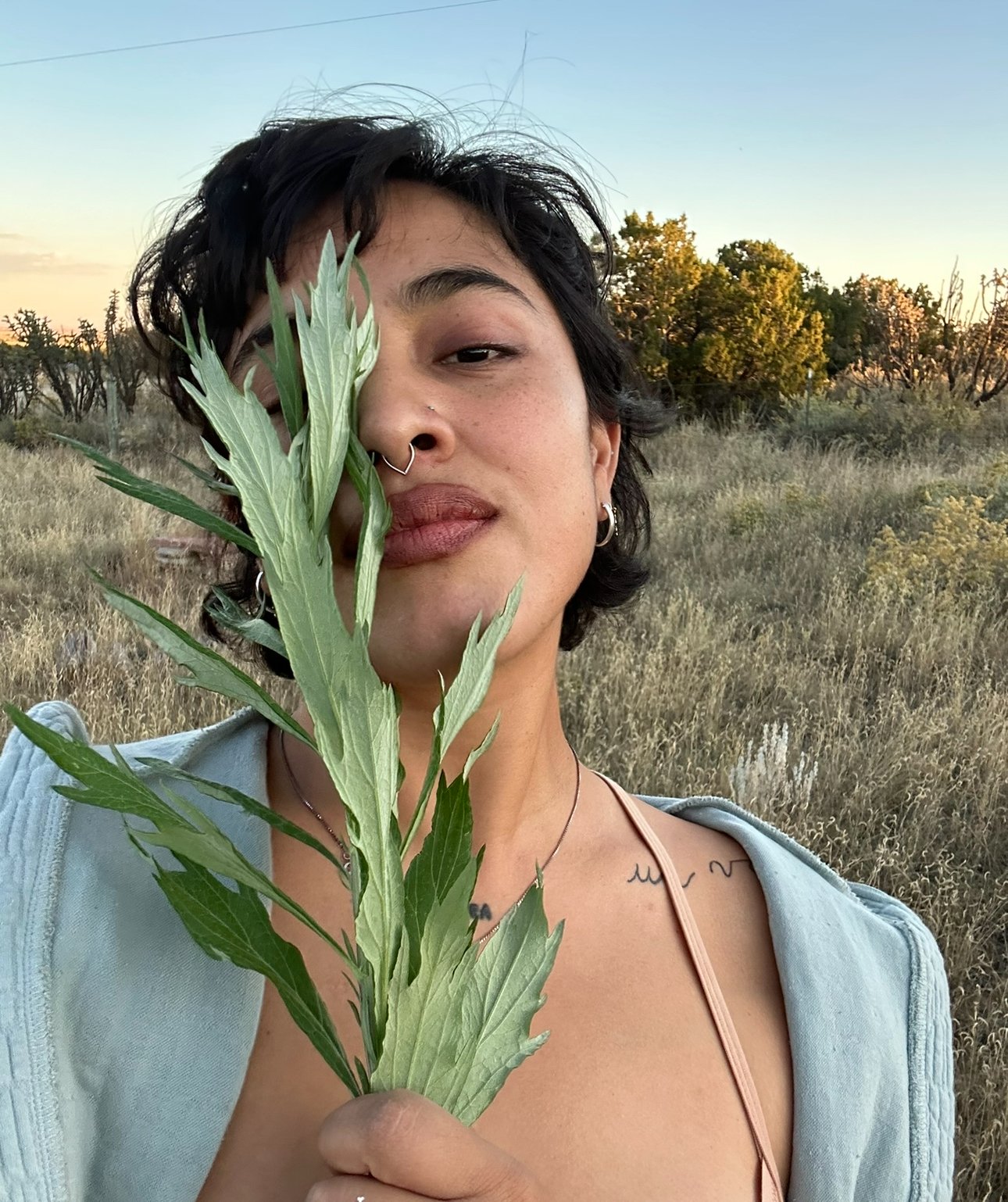
Supporting people through abortion: a mutual aid practice
with Serpentina
Abortion is an ancient practice that has coexisted with birth throughout history. Despite colonial narratives framing abortion as a "sin," it has always been a part of the human experience. This knowledge share is designed to equip you with the skills and knowledge necessary to support your loved ones during their abortion journeys.
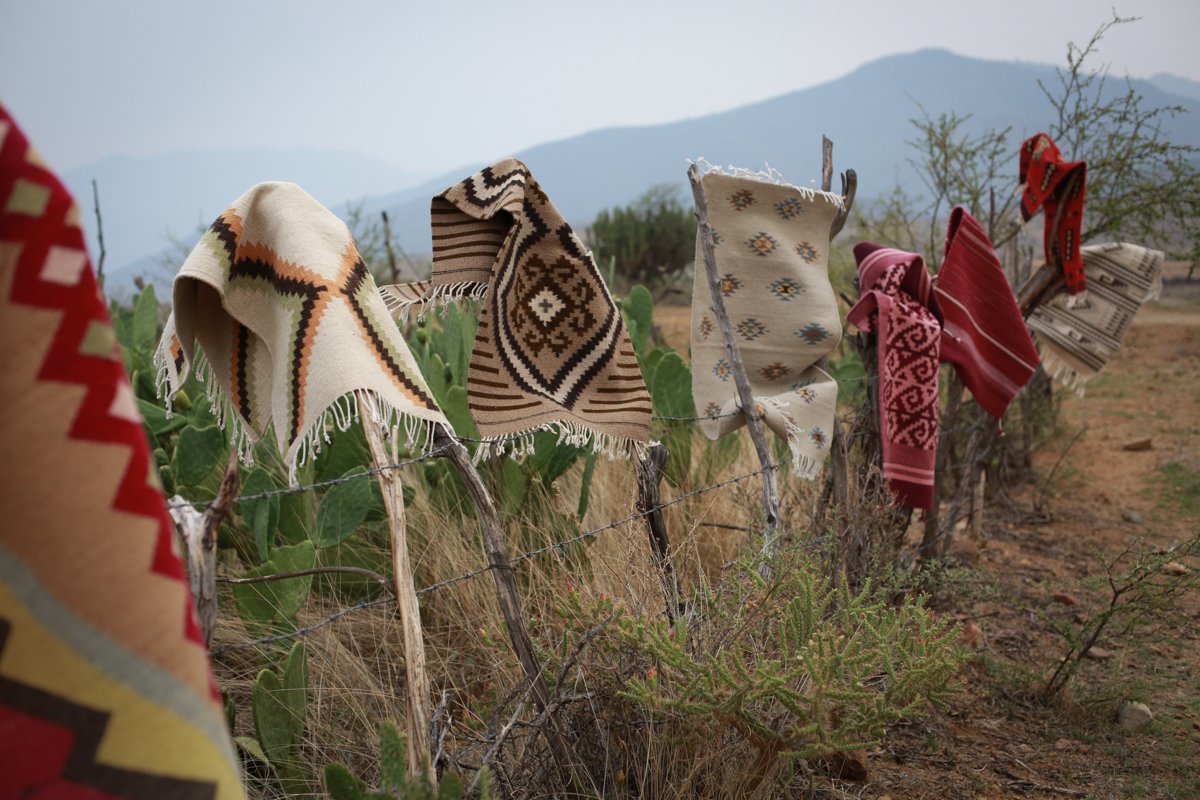
Dixza: 'Words from the Clouds'—Weaving a Way of Life
with Dr. Samuel Bautista Lazo
In this knowledge share, Dr. Samuel Bautista Lazo will guide us through the history of his people, the Benzaa (Cloud People), known to the western world as the Zapotecs. He will share indigenous perspectives and stories passed down from his grandparents that trace back to the last ice age. The Benzaa have been stewards of the central valley of Oaxaca for centuries, adapting to the natural and cosmic cycles they have experienced.

Ecological Sanitation: Who deals with our crap, who doesn't, and why?
with Dr. Sarah Nahar
In order for complex life forms to survive on planet Earth, people—especially those of us responsible for contributing to climate changes and benefiting from global inequality—must make significant transformations to how we live at a basic level. Human survival depends on access to water and food. We have rightfully given considerable attention to these essential human needs. But we have given far less consideration to the equally essential human need to release excess water and food from our system through urination and defecation. The line of research that I am proposing here seeks to address issues of disproportionate water usage, and the dearth of dignified, sustainable sanitation options and systems.
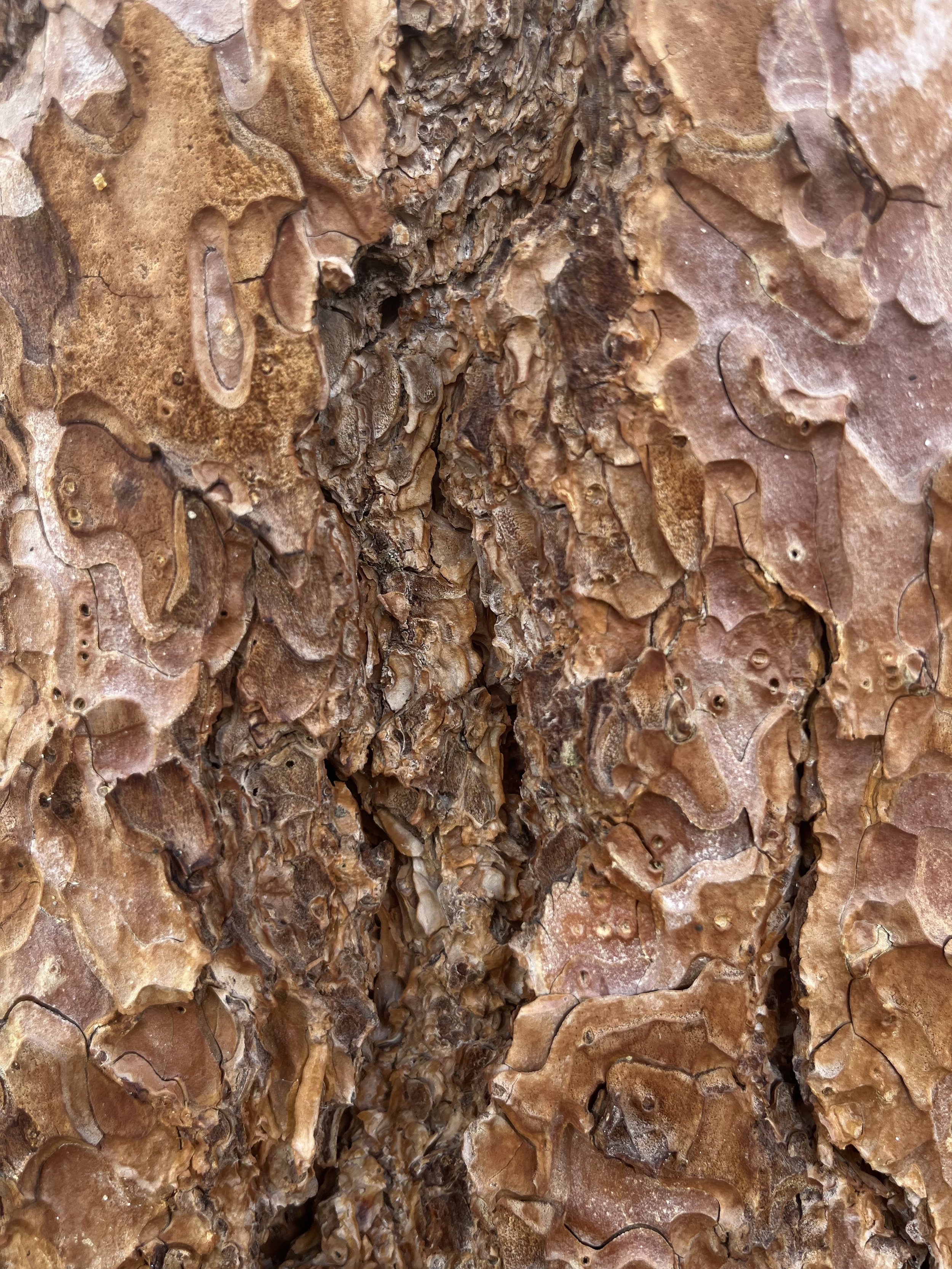
Somatics as Liberation Work
with Dr. tayla shanaye
Somatics, from the Greek root SOMA, meaning the living body in wholeness is an ancient lifeway embedded in animality. How we survive is a bodily process. It's an organic unfolding. Civilization and the project of colonial modernity has sought to dislocate us from this truth to uphold the Cartesian duality of the mind/body split that allows for systemic dominance to take hold. This knowledge share is an exploration into the body as a site and location of liberation. It is an experiential decoupling from systemic dominance in order to awaken into pockets of freedom.
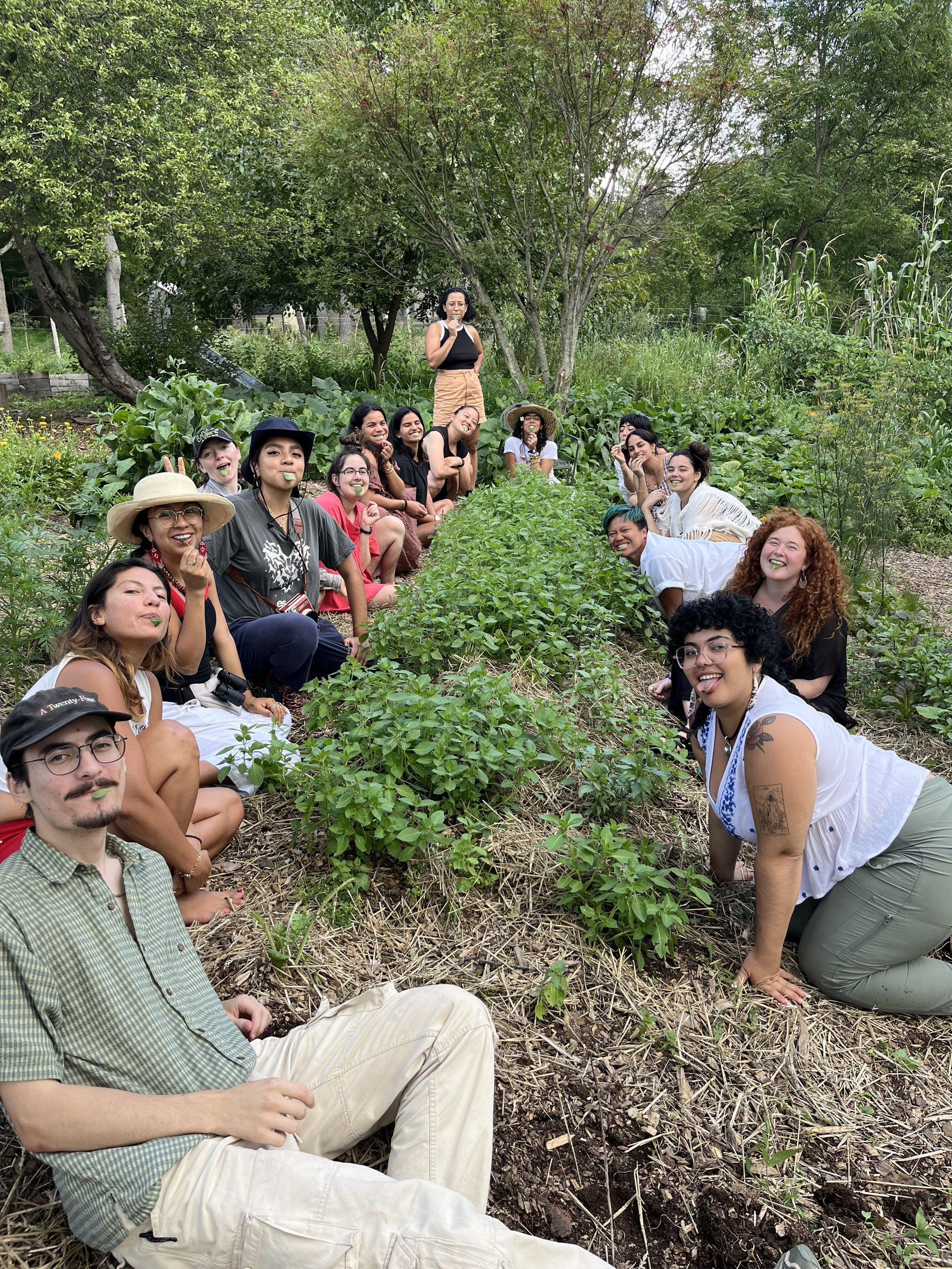
Herban Cura: New York City Fall Herbalism Immersion
with Antonia Estela Pérez
The intention for this Intro to Herbalism IN PERSON immersion is to grow each individual’s awareness and relationship to their own internal ecology, territory they are on and the messages the plants growing in the North East bioregion are sharing with us. These four sessions aim to activate observational skills and curiosity to learn about the beings growing and living around and with us, whether we live in an urban landscape or not. We will also be learning basic medicine making to support your self and loved ones.
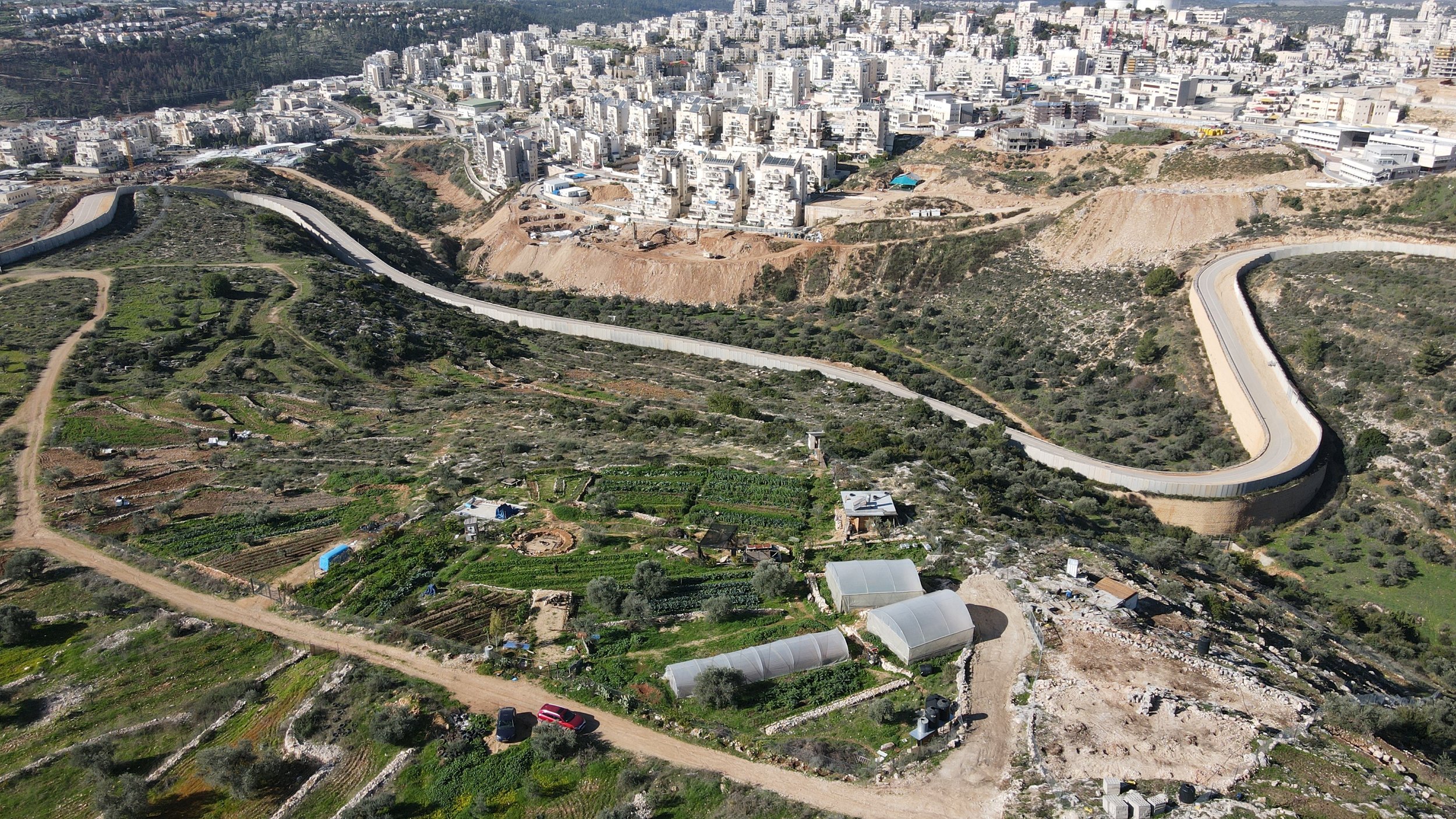
Om Sleiman Farm: Resistance Farming In Palestine “We Plant Seeds Knowing We Will be there for the Harvest”
with Yara Dowani
Join us for a storytelling knowledge share about farming in Palestine. Since 2016, located in Bil’in, Palestine, Om Sleiman Farm has been more than just a CSA farm; it's been a vital space for Palestinian connection to the land while reclaiming spaces of imagination through collective resistance and regeneration.
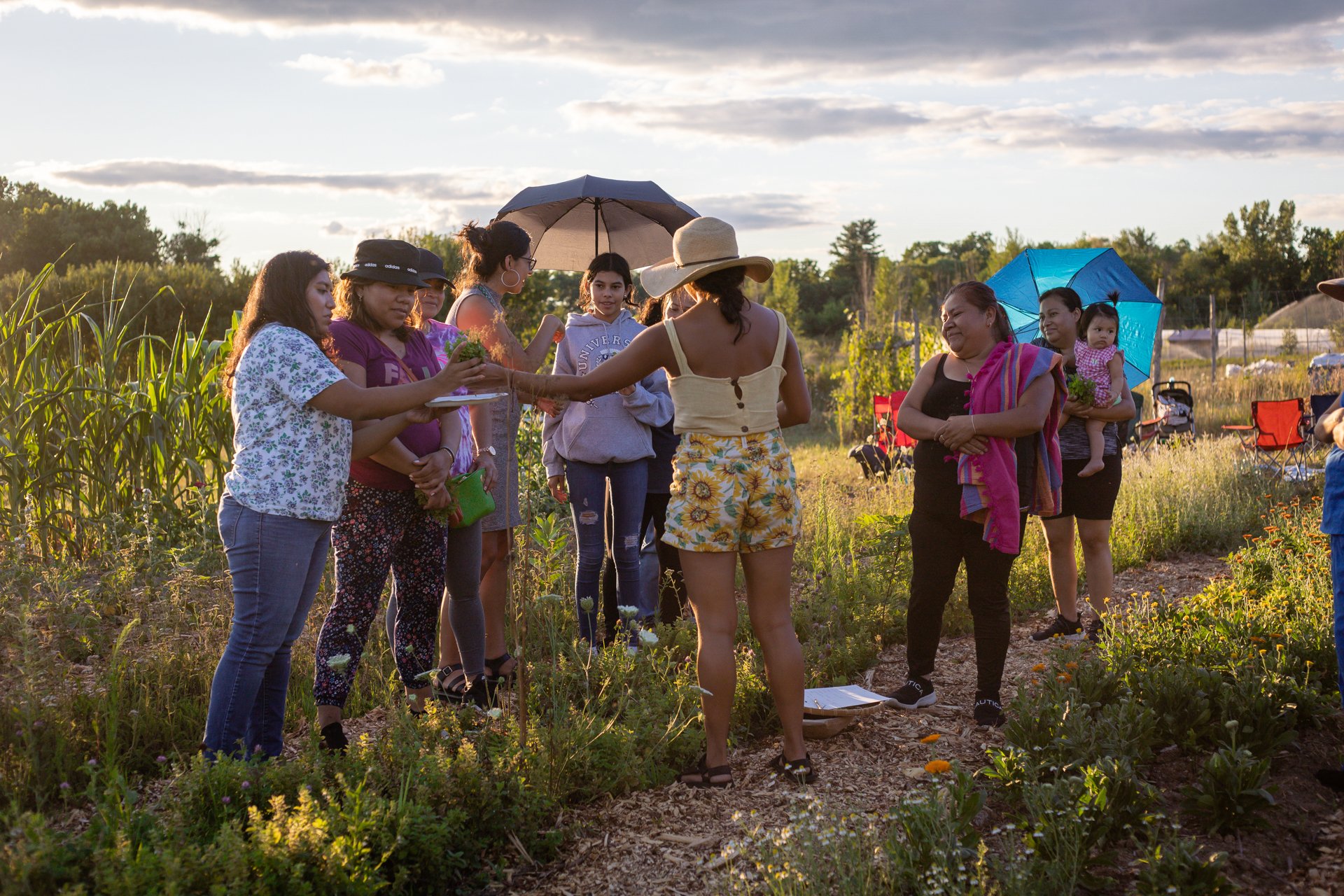
Herban Cura: New York City Summer Herbal Immersion
with Antonia Estela Pérez
The intention for this Intro to Herbalism IN PERSON immersion is to grow each individual’s awareness and relationship to their own internal ecology, territory they are on and the messages the plants growing in the North East bioregion are sharing with us. These four sessions aim to activate observational skills and curiosity to learn about the beings growing and living around and with us, whether we live in an urban landscape or not. We will also be learning basic medicine making to support your self and loved ones.
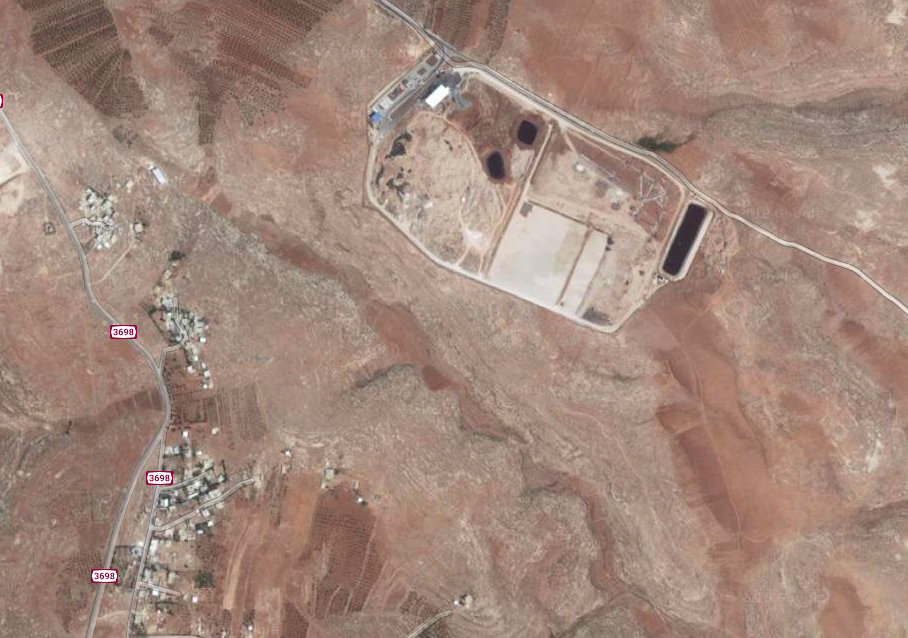
Palestine: Ecology, Waste, Siege
with Dr. Sophia Stamatopoulou-Robbins
This knowledge share traces Palestinians’ experiences of waste in the West Bank, but it has ramifications for understanding all of the lands under Israeli control, including Gaza. I explore what Palestinians’ improvisations for mitigating the effects of what I call a “waste siege” can tell us about Palestinians' approaches to time and collectivity, and how thinking through the category of ecology can help us understand those approaches. My talk offers an analysis unusual in the study of Palestine: it begins with the environmental, infrastructural, and aesthetic context in which Palestinians forge their lives. It describes a series of conditions: from smelling wastes to negotiating military infrastructures, from biopolitical forms of settler colonial rule to experiences of governmental abandonment, from obvious targets of resistance to confusion over responsibility for the burdensome objects of daily life.
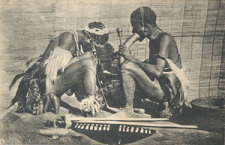
The African Roots of Cannabis: Ecological, Social and Political Histories
with Dr. Chris Duvall
This knowledge share moves beyond rumors to outline the plant’s documented history, which underscores the importance of African knowledge in the currently dominant uses of the plant worldwide. Pan-African experiences are complexly entwined in the plant’s past. If you know that cannabis can be a smoked drug, that is ancient African knowledge; water pipes were anciently invented in Africa; enslaved people from Central Africa carried the plant across the Atlantic, and their words for the plant survive in English; hemp industries in many countries depended upon enslaved people; commercial marijuana industries depend upon seeds taken from Africa. Historical experiences such as these have been forgotten in modern societies, despite robust evidence of the foundational importance of African knowledge in shaping global interactions with the plant.
